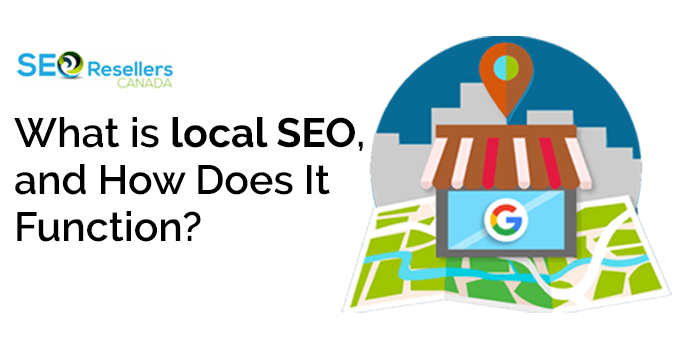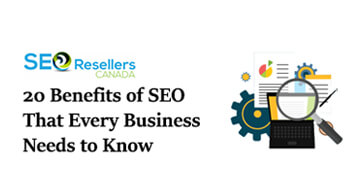Trying to figure out why your website isn’t climbing the search rankings like you had hoped? There is a great chance E-E-A-T is playing a bigger role than you realize.
Google E-E-A-T stands for- Expertise, Experience, Authoritativeness and Trustworthiness. And it has become one of Google’s most important criteria for gauging websites.
You can think of E-E-A-T as Google’s way of asking- Should people actually trust this website with their time and attention?
It is essentially Google’s quality control system. It is designed to ensure that when someone searches for information- whether it’s medical advice or even restaurant recommendations- they are getting content from sources that actually know what they are talking about.
The interesting thing about E-E-A-T is that it’s not some technical SEO trick you can game with keyword stuffing or clever coding. Instead, it’s about building genuine credibility and demonstrating real value to your audience. This shift reflects how search has changed from simply matching keywords to actually understanding/rewarding quality content from trustworthy resources.
Whether you are running a local business website or building an online presence in any industry, understanding how E-E-A-T affects your search visibility can make a difference between languishing on page three of search results and actually connecting with the people you are trying to reach.
This article will help you understand what E-E-A-T means and most importantly how you can demonstrate it for your brand and content. Let us get into it-
1- What does E-E-A-T mean?
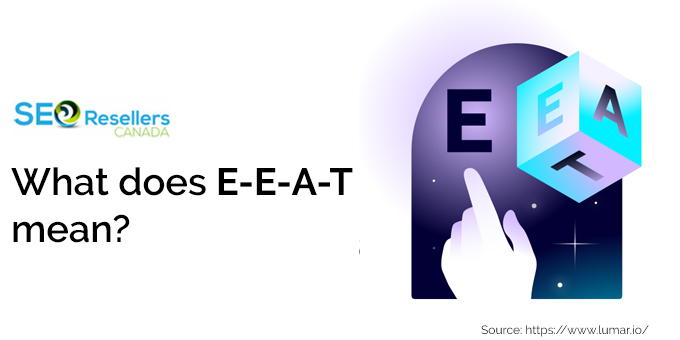
It stands for- Experience, Expertise, Authoritativeness and Trustworthiness. It is a development of the original E-A-T concept.
When Google introduced E-A-T it was to check web content’s overall credibility. It stands for Expertise, Authoritativeness and Trustworthiness. Understanding what is EAT SEO became an important component of Google’s Search Quality Rater Guidelines. E AT guidelines are what human raters make use of to evaluate search results.
The addition of the 2nd E which stands for Experience is a more recent evolution. Google understood that first-hand experience is very important to credibility and expertise for many topics. This stands especially true for YMYL or Your Money or Your Life topics. This is where the content can influence a person’s financial stability, health, wellbeing or safety.
Google signalled by this expansion that it values the content creator’s reputation, credentials and direct experience with the topic. It is important that you know that what is Google EAT in SEO is not a direct ranking factor. In fact, it is used by human quality raters. They use it to check the overall quality of search results.
2- What makes E-E-A-T important?
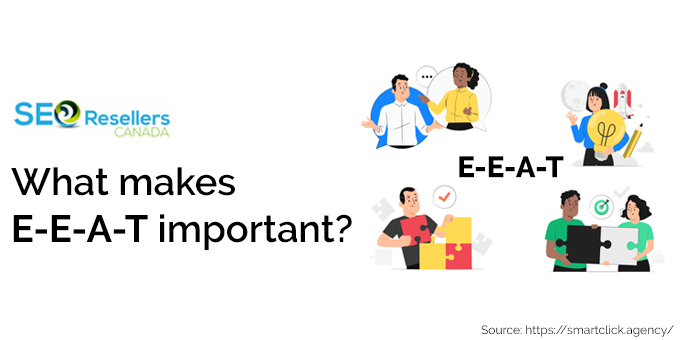
The aim of Google is pretty clear. By prioritizing E-E-A-T it wants only the most reliable and valuable content to surface for any query. This benefits the users by giving them good quality search results. It also benefits content creators and brands who invest in building genuine authority in their field.
E-E-A-T is particularly important for YMYL topics/brands. These are sensitive subjects and users need to trust the information they find online. Content created by those who have direct experience is often seen as reliable and trustworthy.
But the importance of E-E-A-T goes beyond just YMYL pages. Users value content from those who have experience or first-hand knowledge of virtually any topic. This applies to travel guides, product reviews or technical tutorials.
For example- if an author is writing a Samsung phone review, they should have used the product. Or if they are writing about the best restaurants in Brisbane, they should have visited them.
In addition to adding experience as a factor, Google is placing more emphasis on trust. The most critical component of E-E-A-T is Trust. This is because pages that are untrustworthy have low E-E-A-T no matter how Expert, Experienced, or Authoritative they may seem.
Content writing is not about manipulating algorithms. It’s about connecting with real people. Many creators are overly concerned about their search engine rankings.
The real magic happens when you shift your focus from gaming the system to truly serving your audience. EEAT is more than just a checklist for SEO. It represents an approach to creating content that has a significant impact and genuinely improves people’s lives.
3- How to establish E-E-A-T for your brand?
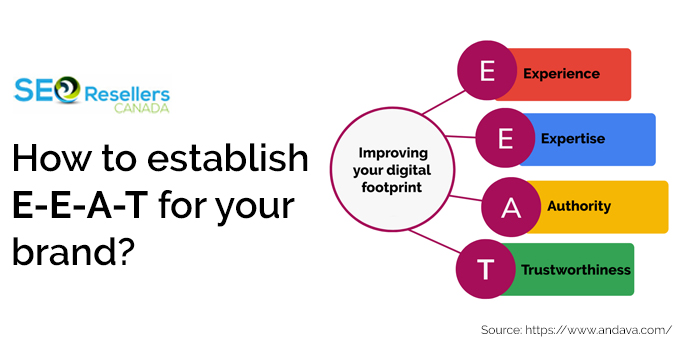
You can consider the below mentioned strategies. They can help you demonstrate EEAT in your content. Many businesses find that improving your digital footprint through these methods significantly enhances their online presence-
3.1- E- Experience
Experience goes beyond what you know. It is about what you have actually done and lived through in your field. Google makes this crystal clear in their Search Quality Rater Guidelines by asking- “Does content show it was created by someone with real experience, like actually using a product, visiting a place or sharing what they personally went through?”
They want to see “photos, audio, or other proof of your hands-on experience” because it proves you are the real deal.
Here is the thing- Google separates experience from expertise in their E-E-A-T guidelines. You might know everything there is to know about your industry. But you still need to show you have gotten your hands dirty in the real world.
Let us give you some examples of experience that actually work-
3.1.1- Book reviews that feel real
Imagine when a book blogger talks about how a novel made them cry at 2 am. Or how they couldn’t put it down during their commute. This is how you know they actually read it. That is way more convincing than generic summaries.
3.1.2- Travel content from someone who was there
The best travel guide comes from people who have actually wandered those streets/gotten lost, found hidden gems and can tell you which restaurant gave them food poisoning. Photos and stories from real trips beat stock images every time.
3.1.3- Case studies with real numbers
Companies that share honest case studies can build serious trust. A software company showing exactly how they boosted a client’s revenue by 40% hits differently than vague promises.
You should not sleep on the power of Experience. You need to share genuine stories and insights from your actual journey. This will help you create content that stands out from generic and artificial stuff. It can help you build real trust with your audience.
3.2- E- Expertise
Creating compelling content is just the start. You need to showcase your knowledge in order to establish yourself as an expert. And do it in ways that actually matter. Here is how you can get your readers thinking- “Wow, this person really knows what they are talking about”.
3.2.1- Show real understanding, not just facts
Anyone can regurgitate information. What sets you apart is diving deeper—breaking down complex ideas and giving people solutions they can actually use. This approach is essential for SEO friendly content writing that truly serves your audience.
3.2.2- Back up what you say
When you make claims, prove them. You need to use solid research and credible sources. It shows you’ve done your homework and aren’t just throwing opinions around.
3.2.3- Mix up how you share knowledge
You should not just stick to blog posts. You can try infographics when you are dealing with numbers or videos when you want to show something in action. Many people also make use of detailed case studies when they really want to dig into a topic.
3.2.4- Don’t be shy about your wins
Do you have awards to your name or certifications that matter? Have you spoken at events? Then, it’s time to share them. This is not about bragging. It’s giving people reasons to trust what you have to say.
3.2.5- Tell your story
You should write a bio that is actually interesting and worth reading. You need to connect to your background/education and experiences in a way that shows why you are passionate about what you do. And yes, you need to include a real photo. People want to see the human behind the expertise.
3.2.6- Building your expert status
Becoming a subject matter expert goes way beyond just hitting “publish” on your content. You need to build a reputation that people can count on. Here is what will actually work in your favour-
Connect with your people- Don’t just post and disappear. Jump into the comments and answer questions on social media. You should get involved in industry conversations. When people see you are genuinely engaged, they start seeing you as someone worth listening to.
Write for the big players- Getting your work featured on well-known websites puts your expertise in front of way more people. It is like getting a stamp of approval from sites everyone already trusts. This strategy helps boost website visibility while building your authority.
Build connections with the right people- You should reach out to other experts in your field. Work together on projects, share each other’s content or collaborate on something new. When you’re connected to people who are already respected, some of that credibility rubs off on you too.
The key here is consistency. You should show up regularly and add real value to conversations. You should focus on being helpful rather than just promoting yourself.
3.3- A- Authority
Being an expert is one thing, but having real authority? That is where the real magic happens. Google’s Search Quality Rater Guidelines put it perfectly: they want to see if you’re known as the go-to person for your topic. Not every field has one clear leader, but when they do, those are usually the sources people trust most.
3.3.1- Use social proof that actually works
Testimonials are great but don’t just slap quotes on your homepage and call it a day. You should include real photos and links to the people giving you props. When visitors can see actual humans vouching for you and can verify they are real—that builds genuine trust.
3.3.2- Show your growth, don’t just talk about it
Instead of claiming you are an authority, let people watch your journey unfold. You can start with smaller speaking gigs and work your way up to bigger conferences. Then you might eventually land those keynote spots. When people see your progression from participant to featured speaker, they understand you’ve earned your place.
3.3.3- Partner with the right people
The fastest way to build authority? Get endorsed by people who already have it. Reach out to the big names in your space and find ways to work together—whether that’s guest posts or research projects. When established authorities associate with you, their credibility becomes part of your story too.
3.4- T- Trustworthiness
Trust isn’t just nice to have- it’s everything. Google puts it bluntly in its guidelines: trust trumps expertise, experience and authority combined. If people don’t trust you, nothing else matters because they will leave and find someone they do trust.
So how do you actually build that trust? Here is how-
3.4.1- Get your facts straight
You need to check everything twice. Always use sources people recognize and respect. Skip the dramatic headlines that promise the world—they make you look desperate and unreliable.
3.4.2- Show your work
Don’t hide behind mystery. You should tell people where your information comes from. Also, be upfront about what you know (and what you don’t). When people can verify what you are saying, they are more likely to believe it. Transparency is crucial for how to get quality backlinks.
3.4.3- Put real people behind your content
You need to include author bios that actually mean something. Share relevant experience, qualifications, or awards that show why someone should listen to you. If your organization has credentials, don’t be shy about displaying them.
3.4.4- Make security obvious
You should use HTPPS so people see that little padlock in their browser. It is a small thing that tells visitors their information is safe with you.
3.4.5- Be clear about privacy
Write a privacy policy that normal people can understand. Explain what information you collect and why. People appreciate honesty about how their data gets used.
3.4.6- Share real success stories
Nothing beats concrete examples with actual names and numbers. When you can show specific results you have achieved for real people or companies, it carries way more weight than vague promises.
4- Your E-E-A-T action plan

Building trust and authority online isn’t rocket science but it does take consistent effort. Here is a roadmap you can follow-
1- Update your content regularly, especially when it comes to dates/statistics or time sensitive information. Stale content can kill credibility very fast.
2- A clean and fast-loading website that works perfectly on phones isn’t optional anymore. Broken pages and slow loading times come across as unprofessional.
3- Write substantial pieces that really explore your topic and don’t just skim the surface.
4- Stick to one topic per piece. When you try covering everything at once, you end up saying nothing meaningful about anything.
5- Don’t just explain concepts. Your focus should be to teach people exactly how to apply what you are teaching them.
6- You should focus on creating content so good that other reputable sites want to link to it. Quality backlinks are like votes of confidence from your peers.
7- You should check your website for outdated information and content that doesn’t hold up anymore. Fix what’s broken, update what’s old.
5- AI generated content and E-E-A-T
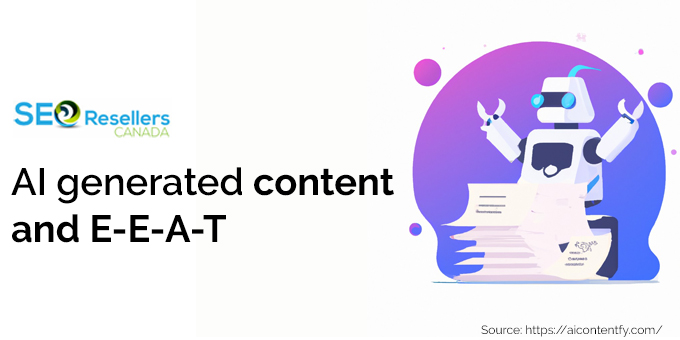
The rise of AI tools like ChatGPT has raised many questions. There are doubts about how AI-generated content aligns with these principles.
Content that is created solely by AI might not meet the EEAT criteria. This is because these guidelines refer to first-hand experience.
This is why Google advises not to publish AI generated content that is not edited or reviewed by a human. The content should be evaluated for usefulness, accuracy and compliance with other quality guidelines.
For content creators and brands, the key is to use artificial intelligence to enhance and assist human-created content. AI can help with outlining, research or even drafting. However, the final output should be edited, reviewed and enhanced by a human writer who has real-world experience. This approach will help you get the benefits of AI while following the E-E-A-T guidelines.
6- To conclude
When Google added the extra “E” for experience in their quality guidelines, they weren’t just tweaking their algorithm. They were sending a clear message about what really matters online. They want content from actual people who have been there and done that.
This shift means you can’t just write about topics anymore; you need to show you have lived them. An SEO expert would know that the days of generic and surface level content are over.
The websites that thrive in this new landscape won’t be the ones trying to game the system. They will be the ones that genuinely deserve to rank because they are providing real value to real people. And that’s exactly where you want to be.
You can also get in touch with an SEO agency like SEO Resellers Canada. They can lay out a roadmap on extracting maximum value from E-E-A-T. This partnership can prove to be a great way to showcase how outsourcing can help your business with targeted SEO campaigns.












